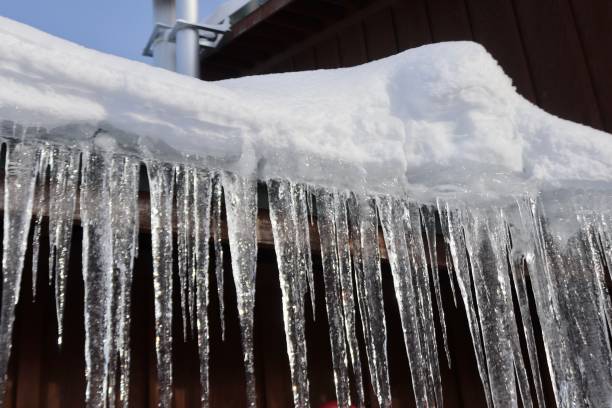Important Tips to Avoid Frozen Pipes in Cold Weather: Expert Insights
Important Tips to Avoid Frozen Pipes in Cold Weather: Expert Insights
Blog Article
This post further down relating to How To Avoid Freezing Pipes is seriously interesting. Don't skip it.

Cold weather can ruin your pipes, especially by freezing pipes. Right here's just how to avoid it from happening and what to do if it does.
Intro
As temperature levels decline, the danger of icy pipelines increases, possibly leading to expensive repair work and water damages. Understanding how to stop frozen pipelines is essential for homeowners in chilly environments.
Recognizing Frozen Pipes
What creates pipes to freeze?
Pipelines ice up when subjected to temperature levels below 32 ° F (0 ° C) for extended durations. As water inside the pipes ices up, it expands, taxing the pipe walls and possibly triggering them to rupture.
Dangers and damages
Frozen pipelines can result in water interruptions, building damages, and expensive repair services. Ruptured pipes can flood homes and cause substantial structural damage.
Indicators of Frozen Pipes
Determining icy pipes early can avoid them from breaking.
Exactly how to recognize frozen pipelines
Look for reduced water circulation from taps, unusual odors or noises from pipelines, and noticeable frost on exposed pipes.
Prevention Tips
Protecting susceptible pipes
Wrap pipelines in insulation sleeves or use warm tape to secure them from freezing temperatures. Concentrate on pipelines in unheated or outside areas of the home.
Heating techniques
Maintain interior spaces sufficiently heated up, especially locations with plumbing. Open up cupboard doors to allow cozy air to distribute around pipelines under sinks.
Securing Outdoor Pipes
Garden tubes and outside taps
Disconnect and drain pipes garden pipes prior to winter months. Install frost-proof faucets or cover exterior faucets with protected caps.
What to Do If Your Pipelines Freeze
Immediate actions to take
If you believe frozen pipes, maintain taps open up to relieve stress as the ice melts. Utilize a hairdryer or towels taken in hot water to thaw pipelines gradually.
Long-Term Solutions
Architectural changes
Consider rerouting pipes away from exterior walls or unheated locations. Add additional insulation to attic rooms, basements, and crawl spaces.
Upgrading insulation
Invest in premium insulation for pipes, attics, and walls. Proper insulation aids maintain consistent temperatures and decreases the danger of frozen pipes.
Final thought
Protecting against icy pipes needs positive steps and quick reactions. By recognizing the reasons, indications, and preventive measures, home owners can shield their pipes during cold weather.
Helpful Tips to Prevent Frozen Pipes this Winter
UNDERSTANDING THE BASICS: WHY PIPES FREEZE AND WHY IT’S A PROBLEM
Water freezing inside pipes is common during the winter months, but understanding why pipes freeze, and the potential problems it can cause is crucial in preventing such incidents. This section will delve into the basics of why pipes freeze and the associated problems that may arise.
THE SCIENCE BEHIND FROZEN PIPES
When water reaches freezing temperatures, it undergoes a physical transformation and solidifies into ice. This expansion of water as it freezes is the primary reason pipes can burst. As the water inside the pipe freezes, it expands, creating immense pressure on the walls. If the pressure becomes too great, the pipe can crack or rupture, leading to leaks and water damage.
FACTORS THAT CONTRIBUTE TO PIPE FREEZING
Low Temperatures: Extremely cold weather, especially below freezing, increases the risk of pipes freezing. Uninsulated or Poorly Insulated Pipes: Pipes located in unheated areas, such as basements, crawl spaces, or attics, are more prone to freezing. Insufficient insulation or lack of insulation altogether exacerbates the problem. Exterior Wall Exposure: Pipes running along exterior walls are susceptible to freezing as they encounter colder temperatures outside. Lack of Heating or Temperature Regulation: Inadequate heating or inconsistent temperature control in your home can contribute to frozen pipes. PROBLEMS CAUSED BY FROZEN PIPES
- Pipe Bursting: As mentioned earlier, the expansion of water as it freezes can cause pipes to burst, resulting in significant water damage.
- Water Damage: When pipes burst, it can lead to flooding and water damage to your property, including walls, ceilings, flooring, and personal belongings.
- Structural Damage: Prolonged exposure to water from burst pipes can compromise the structural integrity of your home, leading to costly repairs.
- Mold and Mildew Growth: Excess moisture from water damage can create a favorable environment for mold and mildew growth, posing health risks to occupants.
- Disrupted Water Supply: Frozen pipes can also result in a complete or partial loss of water supply until the issue is resolved.
WHY CERTAIN PIPES ARE MORE PRONE TO FREEZING
- Location: Pipes located in unheated or poorly insulated areas, such as basements, crawl spaces, attics, or exterior walls, are at higher risk of freezing.
- Exterior Pipes: Outdoor pipes, such as those used for irrigation or exposed plumbing, are particularly vulnerable to freezing as they are directly exposed to the elements.
- Supply Lines: Pipes that carry water from the main water supply into your home, including the main water line, are critical to protect as freezing in these lines can affect your entire plumbing system.
- Underground Pipes: Pipes buried underground, such as those connected to sprinkler systems or outdoor faucets, can be susceptible to freezing if not properly insulated.
https://busybusy.com/blog/helpful-tips-to-prevent-frozen-pipes-this-winter/
:strip_icc()/snow-outdoor-faucet-pipes-4af65d1e5e904fb1aa7bf74071fe5d89.jpg)
Hopefully you enjoyed reading our excerpt about How To Avoid Freezing Pipes. Thanks a ton for finding the time to read our piece of content. Be sure to set aside a second to promote this article if you enjoyed reading it. Thank-you for taking the time to read it.
Request Service Report this page